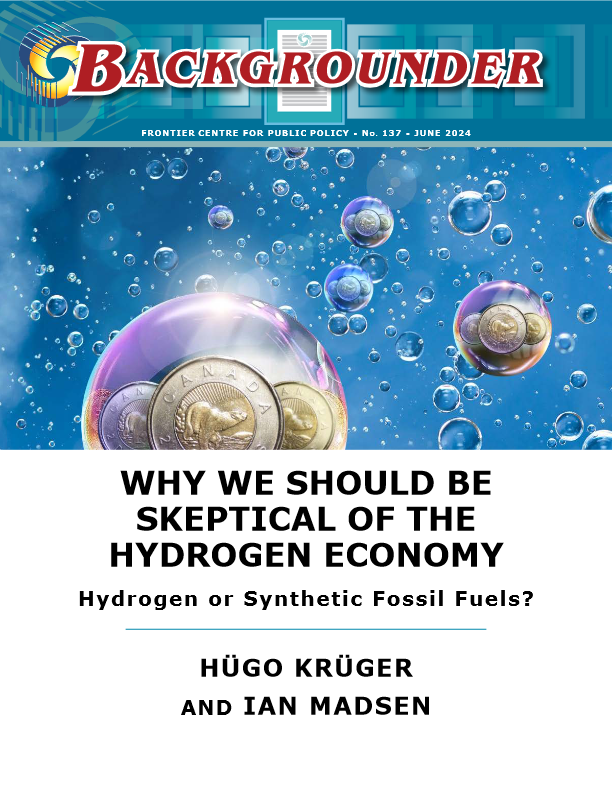At first glance, using highly variable, intermittent, inexpensive renewable energy to produce hydrogen for energy supply stabilization seems logical. However, renewable energy is not always readily available. The concept of hydrogen as a ‘buffer,’ akin to a battery, to ensure consistent renewable power is more complex than it appears.
Upon further examination, the idea is impractical and expensive for several reasons. Among them, hydrogen has a low energy density by volume, compared to well-established and practical fuels such as gasoline, diesel, and natural gas. It also has a low ignition point and is three times as explosive as natural gas, which could be either positive or negative, depending on its use.
Contrary to claims, renewable energy is neither inexpensive nor environmentally benign. Storing hydrogen in a natural gaseous state requires massive, costly storage vessels. Electrolyzing is expensive and will likely remain that way. Similarly, the cost of producing hydrogen is higher than that of deriving it from natural gas, which produces carbon dioxide, which is unwanted. There are some other techniques, such as pressure, heat, and radiolysis from radiation emitted from nuclear reactors, that are feasible, perhaps in combination. Small ‘micro nuclear reactors’ may drive down these costs. Atomic reactors are already used in U.S. Navy aircraft carriers to produce aviation and diesel synthetic fuel.
There are also a series of impractical issues. Existing pipeline infrastructure cannot transport pure hydrogen due to hydrogen embrittlement, and hydrogen cannot easily be used as a transportation fuel. A new Teflon-coated pipeline and distribution system parallel to the existing natural gas network would have to be built, costing hundreds of billions of dollars in North America alone.
While the idea of synthetic fuels using hydrogen may seem more feasible, it would likely be limited to a ‘niche role,’ potentially in natural gas-deficient nations. However, this would still necessitate significant investment. Ultimately, diverting funds to this ‘hydrogen economy’ could be a misallocation of capital from other, potentially more viable, areas.
Download the full report in PDF format here. (16 pages)
Listen and watch Hugo Kruger on Frontier’s Live X Program (56 minutes) – Frontier Live on X – Is Hydrogen Really the Solution? – with Hugo Kruger
Hügo Krüger is a YouTube podcaster, writer, and civil nuclear engineer who has worked on a variety of energy related infrastructure projects ranging from Nuclear Power, LNG and Renewable Technologies. He holds a Master’s in Nuclear Civil Engineering from École Spéciale des Travaux Publics, du bâtiment et de l’industrie, Paris and a bachelor’s from the University of Pretoria.
Ian Madsen, BA (Economics, University of Alberta), MBA (Finance, University of Toronto), holds the Chartered Financial Analyst designation. He was an investment portfolio manager; owned his own investment counselling firm; published an investment newsletter; founded the professional society now known as CFA Saskatchewan in 1986; and was a director of an investment research operation in India. Since 2016, he has been the Senior Policy Analyst at the Frontier Centre for Public Policy, performing valuation analyses on federal and provincial Crown corporations in Canada, and also written numerous policy analyses. He lives in Surrey, British Columbia with his family.



